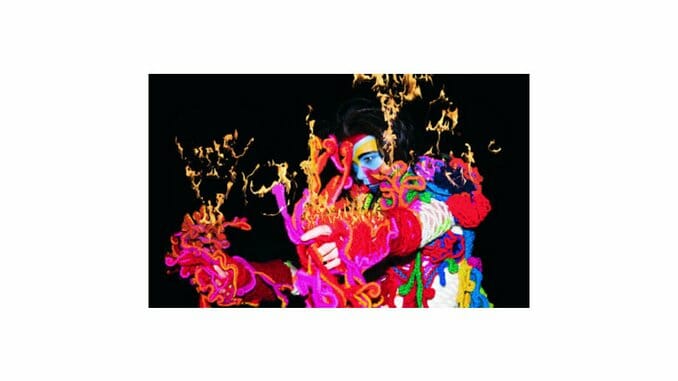Björk: Volta

Iceland’s freest spirit declares her independence… again
When Madonna or David Bowie enlists the latest production gurus to spice up their music, the results frequently come off sounding desperate, as if the pop chameleons needed that brush with youthful creativity to maintain some sense of self-relevance. Not so with Björk, who at 41 still engages thoroughly whomever or whatever she chooses to work with. When she mixes it up with hip-hop-producer-du-jour Timbaland on militaristic stomp “Earth Intruders”—the opening track from her new album, Volta—the result bears little resemblance to what you’d hear on other Timbaland collaborations (i.e. Missy Elliott or Justin Timberlake).
The supercharged techno of “Earth Intruders”—in which Björk wails, “There is turmoil out there; carnage, rambling”—segues into the deep, flatulent calm of fog horns, squeaking seagulls and sloshing water. These sounds introduce “Wanderlust,” in which Iceland’s freest spirit announces in a heavily echoed voice, over rich brass instruments and chirping beats, “I have lost my origin and I don’t want to find it again.”
-

-

-

-

-

-

-

-

-

-

-

-

-

-

-

-

-

-

-

-

-

-

-

-

-

-

-

-

-

-

-

-

-

-

-

-

-

-

-

-








































